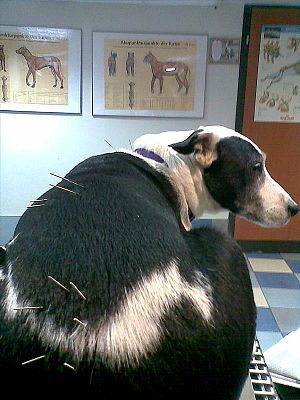
There are a number of dog breeds that have had adverse reactions to ivermectin, loperamide (immodium) and other drugs.
Researchers at the Veterinary Clinical Pharmacology Laboratory at Washington State University have discovered the gene which causes multi-drug sensitivity in dogs. The multi-drug resistance drug, MDR1 has mutated in some dogs. The result is an inability to pump some drugs from the brain which can cause serious illness.
Collies appear to have the highest sensitivity to drugs and 3 out of every 4 has the mutant gene. Australian Shepherds, Old English Sheepdogs, German Shepherds, Long-haired Whippets and Silken Windhounds and breeds mixed with any of these, run a higher risk then other dogs, although the mutant gene is not limited to these breeds.
Here is a list of some the the drugs suspected or known to cause problems in dogs with the mutant MDR1 gene:
- Ivermectin (antiparasitic) (used to treat sarcoptic and demodectic mange and can be absorbed topically as well as orally and by injection)
- Loperamide (immodium, anti-diarrheal)
- Doxorubicin (anti-cancer drug)
- Vincristine (anti-cancer drug)
- Vinblastine (anti-cancer drug)
- Cyclosporin (immunosuppressive)
- Digoxin (heart medication)
- Acepromazine (tranquilizer)
- Butorphanil (pain relief)
On-going studies have shown that over 50 other drugs may potentially cause problems.
Washington State University has developed a test able to screen for the mutant gene MDR1. The test requires that a cheek brush sample be sent by mail. Test kit requests for the presence of the mutant gene can be made online at Washington State University’s College of Veterinary Medicine:
http://www.vetmed.wsu.idu/depts-VCPL/test.asp
The drugs listed and any other drugs should not be administered without the direction of a veterinarian. If there are any adverse reactions, contact your vet immediately.



